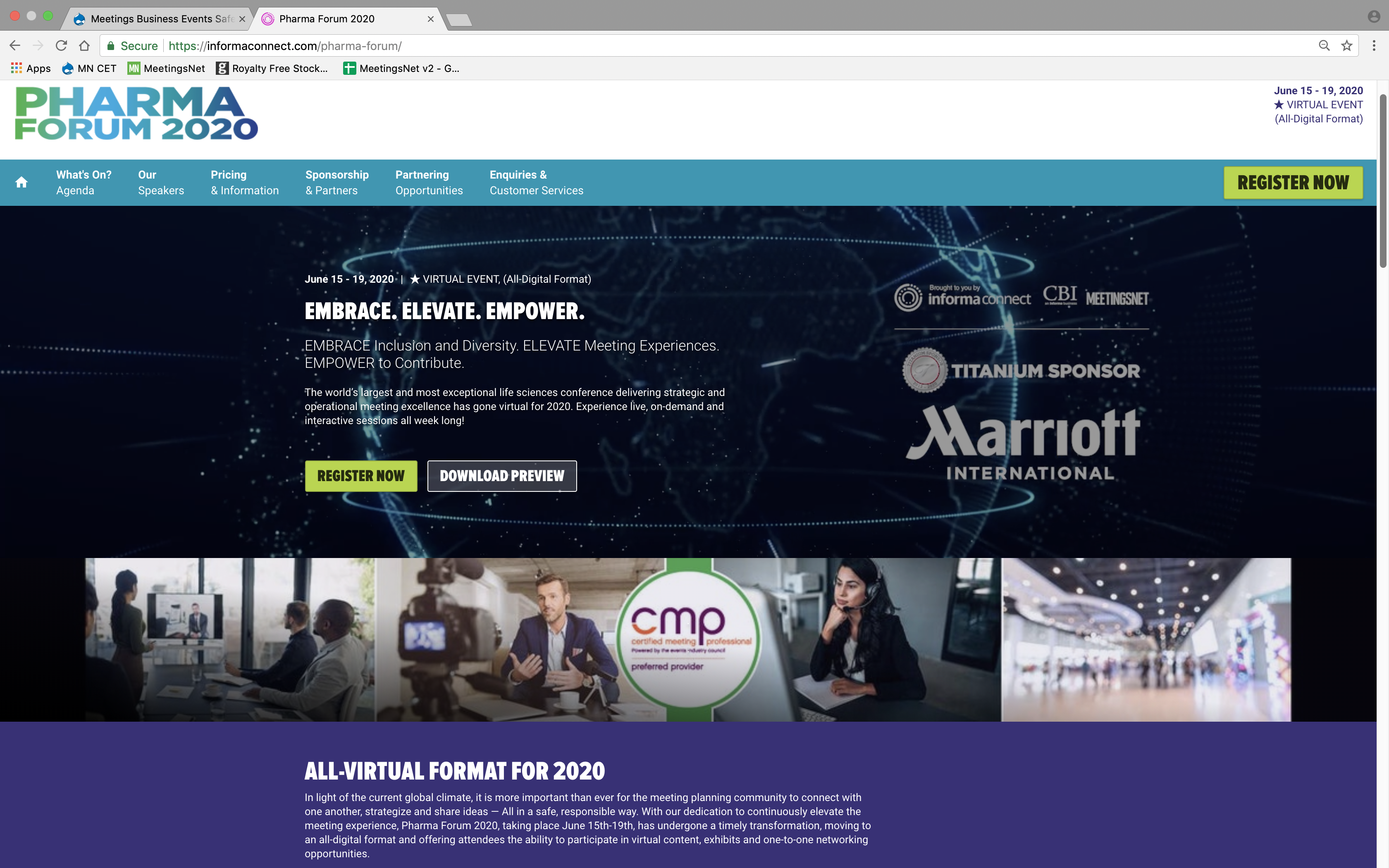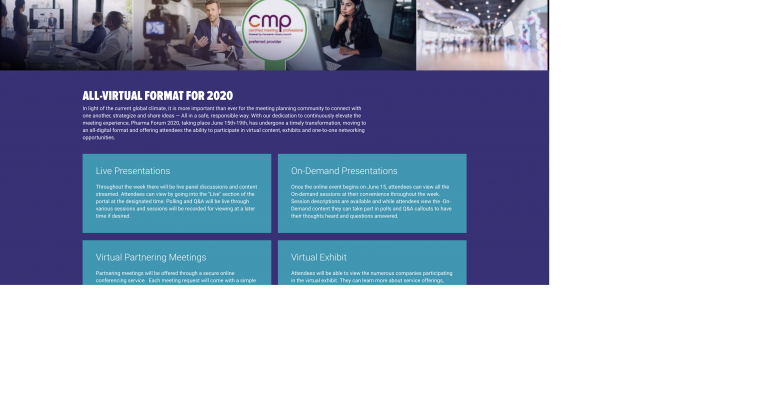To open the virtual version of the annual Pharma Forum conference aimed at medical-event planners, two general sessions on Monday, June 15, focused squarely on the elephant in the room: the modified cleaning and social-distancing protocols hotels will use once in-person meetings and events resume.
Reconfigured as a five-day virtual event in mid-June to replace a three-day in-person itinerary originally set for mid-March, Pharma Forum (owned by Informa, parent company of MeetingsNet) is covering issues relevant not only to medical and pharmaceutical meetings but to all business events.
One example: On the topic of creating safer in-person meeting environments, Brad Mayne, CEO of the International Association for Exhibitions and Events, noted that “most local communities have a code of how much fresh air you have to bring into a commercial building, and HEPA air filters should be used by hotels in addition to that. There are new protocols being created for refreshing the air in event spaces and cleaning it through a filtration system” such as ionization, and planners should speak with property management about the protocols at a property ahead of a meeting.
In addition, Mayne said that “other technologies we are researching include far-UVC [ultraviolet C] lighting devices” that sanitize not just surfaces but also meeting participants themselves, as they step through a special metal arch to enter an event space. The arch beams far-UVC light that neutralizes viruses and bacteria on attendee’s skin but does not damage the skin itself.
 In the second general session, titled “An Inside Look at Hotels in the Age of COVID-19,” Erika Alexander, chief lodging services officer, Americas, for Marriott, agreed with Mayne that “protocols will vary somewhat based on laws in different regions. Even medical experts are still learning and evolving their thinking as we go along.” She emphasized, however, that hotels have many strategies and tactics as part of their “new normal” to make planners feel confident about the hotel environment once events start happening in person again.
In the second general session, titled “An Inside Look at Hotels in the Age of COVID-19,” Erika Alexander, chief lodging services officer, Americas, for Marriott, agreed with Mayne that “protocols will vary somewhat based on laws in different regions. Even medical experts are still learning and evolving their thinking as we go along.” She emphasized, however, that hotels have many strategies and tactics as part of their “new normal” to make planners feel confident about the hotel environment once events start happening in person again.
Among the strategies and tactics being implemented across various hotel brands are:
- Less in-person contact with guests but more connection through mobile technologies
- Face coverings for all employees
- Deeper cleaning of public spaces, with multiple cleanings each day of all high-touch surfaces
- Deeper cleaning of guest rooms between stays and minimal contact with housekeeping staff while on property; Alexander says that attendees should feel their rooms are a “safe sanctuary” where they can have meals and do other tasks if they choose
- In all public spaces: social distancing signage, stanchions, and furniture placement as well as transmission barriers including screens and clear shields
- A “cleanliness champion” on property who knows all procedures, protocols and local laws, and who is available for consultation with meeting leaders
- More plated meals, though buffets are still possible—banquet staff could serve attendees from behind clear partitions
- Packaged meals available for pick-up rather than through room-service delivery
- No permanent coffee-break stations; instead, stations are rolled away and deep-cleaned after each use
- Pools, spas, and gyms to be opened and have occupancy limits according to local conditions and laws
In the event that a hotel employee, meeting attendee, or other hotel guest has a temperature or is not feeling well, “we want everyone to be comfortable communicating with us because we have protocols for quarantining guests in their rooms.” Alexander says. “What we don’t want is someone checking out and going to a property down the street. Transparency on our part about how we can assist in such situations will encourage transparency among our guests.”
Lastly, some attendees of this Pharma Forum session wanted to know if hotels would be adding specific fees to meeting ledgers to account for all the COVID-related actions they are taking. Alexander’s response: Among Marriott properties, “There is no specific strategy to recoup exactly what we spend on our commitment to cleanliness.”





